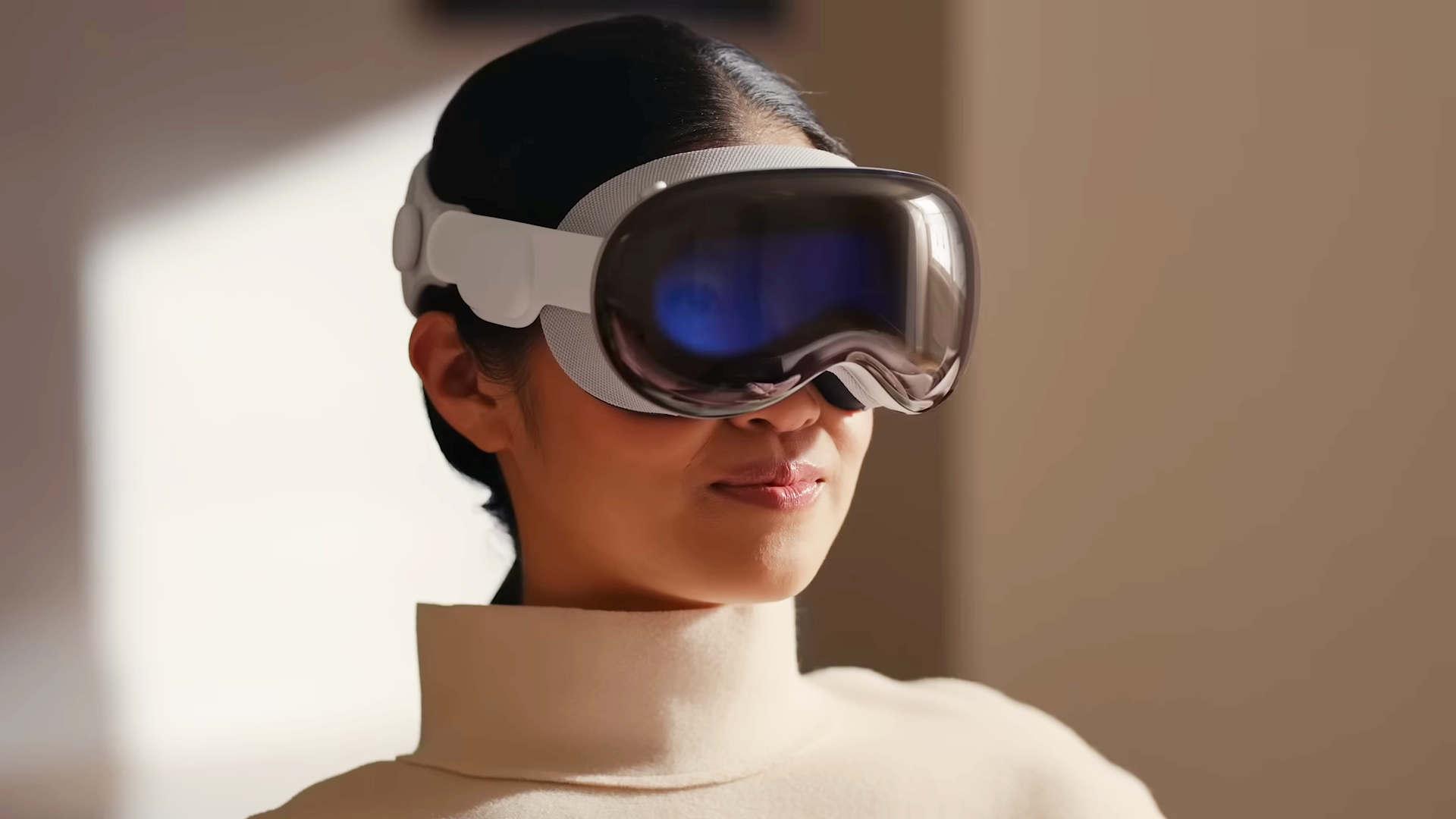Will Lenovo’s Foldable Laptop Fly or Flop?
Foldable screen concepts have floated around electronics shows for years, mesmerizing attendees and promising a future in which TVs roll away and smartphones fold into our pockets.
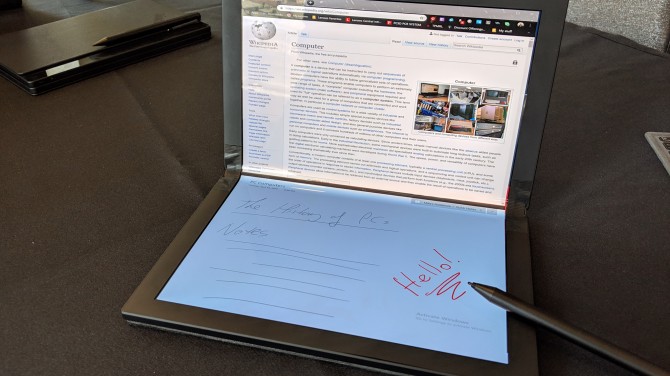
The latter use has seen the most coverage lately, as smartphone makers like Samsung race to push out the first foldable phone. But as the Korean giant fumbled the snap with the Galaxy Fold, an unexpected visitor arrived to reassure early adopters that folding devices are more than just a gimmick.
That surprise appearance came from laptop giant Lenovo, and the foldable laptop it teased is more than just a concept. Rather, Lenovo's foldable device will be the newest addition to the flagship ThinkPad X1 series, which brought us the X1 Carbon and X1 Extreme, two of our favorite laptops.
Early impressions of the device have been largely positive. Our own Editor-in-Chief, Mark Spoonauer, was impressed with the durability of the ThinkPad X1 foldable concept, and believes it will be popular among early adopters. But there remains a lot of uncertainty about the laptop – not only in terms of pricing and availability, but also regarding how consumers will react to the new form factor.
Pricing will be key
I spoke to several analysts to get a better idea of how the foldable ThinkPad will impact the laptop market.
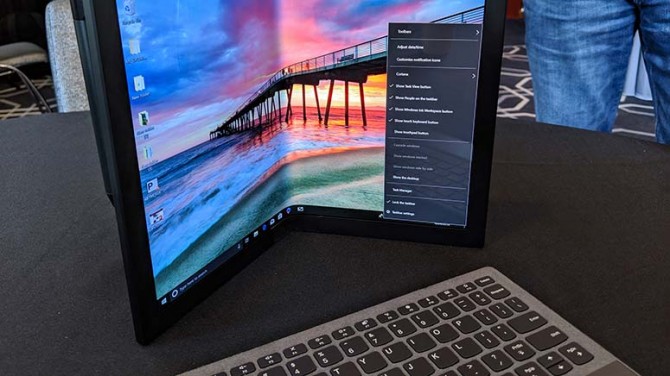
The consensus is that pricing will be a major determining factor in the laptop's success. However, even if the foldable notebook is more affordable than expected, laptops with flexible displays aren't expected to pose a serious threat to traditional clamshell laptops for the next few years.
Stay in the know with Laptop Mag
Get our in-depth reviews, helpful tips, great deals, and the biggest news stories delivered to your inbox.
MORE: Lenovo Just Unveiled World's First Foldable PC, and I Tried It
"The foldable notebook (as well as the imminent dual-screen notebook) phenomenon is currently a solution in search of a problem, which is to say it’s a very cool concept, but unlikely to move the market needle much in the beginning," Linn Huang, research director at IDC, wrote in an email. "For starters, the price gap necessitated by a foldable panel will likely keep these products in the premium end of the premium end."
First-generation growing pains
While we don't know for sure how many units the company plans on producing, the foldable ThinkPad is expected to ship in small quantities.
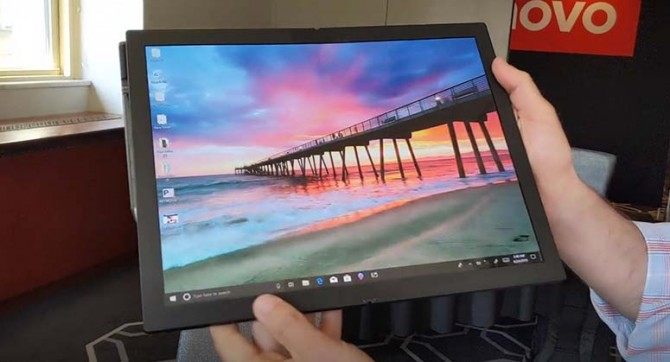
"You're going to have to give it at least two generations, so we're really talking 2022, 2023, before you should start to see things show up in quantities that would start to impact consumer markets," Stephen Baker, vice president of industry analysis at NPD, told Laptop Mag.
As an early adopter of flexible-display technology, Lenovo will face a number of technical roadblocks that haven't been solved by other vendors. Those difficulties were put on full display last month when numerous reports surfaced claiming that the Samsung Galaxy Fold displays were breaking and malfunctioning. Things got so bad that Samsung was forced to delay the Fold launch and make last-minute changes to the design of its screen.
MORE: Lenovo Designs the Weirdest Foldable Phone Yet
Once Lenovo solves the technical issues that plagued other foldable devices, the company will still need to focus on software. In a brief demo, Lenovo showed how a user could fold the laptop, then write in a Word document on one half of the display and browse the web on the other half of it. While Windows worked well in this control demonstration, it will be crucial that programs and apps are optimized to run on the foldable screen.
"The question is, will the software and ecosystem produce enough compelling usage scenarios to drive actual sales?" Huang said. "I’m a bit more dubious about this, at least right at launch. I do believe that this category will be carried in the beginning by the likes of current and aspiring creative professionals as well as prosumers."
Why the Foldable ThinkPad isn't the Galaxy Fold
Despite these potential barriers, analysts believe the foldable ThinkPad is better positioned than the Galaxy Fold. One advantage Lenovo has on Samsung and other companies set to release foldable devices is that the ThinkPad will be targeted at businesses, which should push it further from the scrutiny of the public eye.
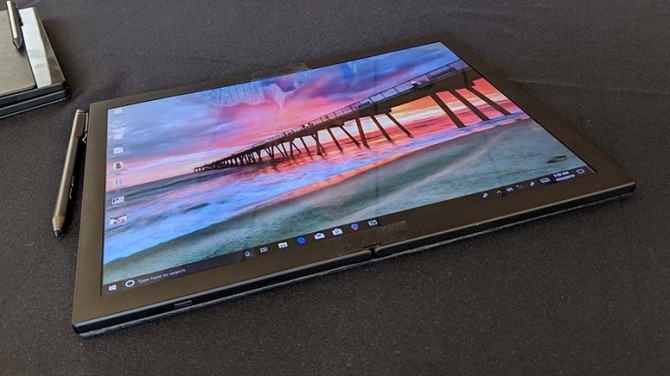
"I think it's even better that it's a commercial product because it's going to be a lot easier to find partners who are willing to think a little different and work with somebody like Lenovo to see what they can do with a product like that," Baker said.
Mikako Kitagawa, a senior principal analyst at Gartner, agrees that Lenovo is taking the right approach by going after business professionals. "Lenovo has foldable on ThinkPad, which means that they are targeting [the] business market," Kitagawa said. "Consumers do not carry [a] laptop with them, but business users do."
No reward without risk
Whether it's a commercial success or not, Lenovo is showing that it's willing to take risks and be the first to market, a refreshing mindset that analysts believe will eventually be rewarded.
"I think you get rewarded for thinking ahead. Whether it's thinking ahead with consumer devices, commercial devices, with software - you're going to get rewarded eventually,” Baker said. “There are no secrets, so certainly they [Lenovo's competitors] are all looking at these products too and they all have their thought processes on how they see value in something like this. I'm sure everybody is looking at what the laptop looks like in 2022 and 2023."
Credit: Laptop Mag
Phillip Tracy is the assistant managing editor at Laptop Mag where he reviews laptops, phones and other gadgets while covering the latest industry news. After graduating with a journalism degree from the University of Texas at Austin, Phillip became a tech reporter at the Daily Dot. There, he wrote reviews for a range of gadgets and covered everything from social media trends to cybersecurity. Prior to that, he wrote for RCR Wireless News covering 5G and IoT. When he's not tinkering with devices, you can find Phillip playing video games, reading, traveling or watching soccer.

